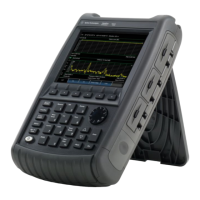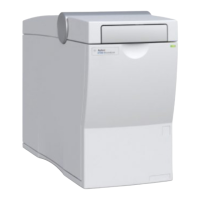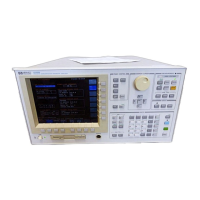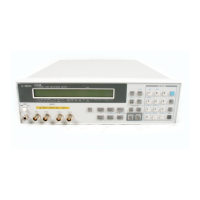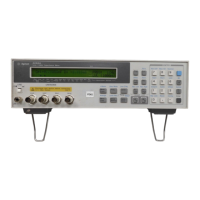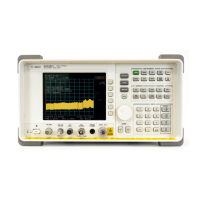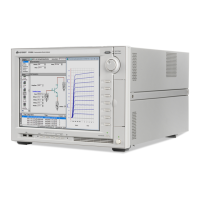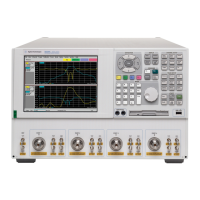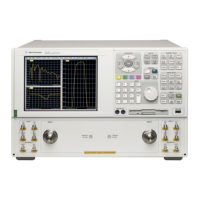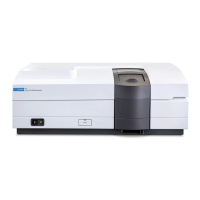24 FieldFox User’s Guide
o Scale Manually enter a scale per division to view specific areas of the trace.
o Ref Level Manually set the value of the reference line. Enter a negative
value by pressing Run/Hold (+/-) either before or after typing a value.
o Ref Position Manually set the position of the reference line. Values must be
between 0 (TOP line) and 10 (BOTTOM line)
3. Set Top and Bottom graticule values. The scale per division is calculated.
o Top to set the value of the Top graticule.
o Bottom to set the value of the Bottom graticule.
o Enter a negative value by pressing Run/Hold (+/-) either before or after
typing a value.
Scale annotation on the FieldFox screen
· Reference Line = red arrow
·Ref Level = -40 dB
· Ref Position = 1
· Scale = 2 dB per division
Averaging
Trace Averaging helps to smooth a trace to reduce the effects of random noise on
a measurement. The FieldFox computes each data point based on the average of
the same data point over several consecutive sweeps.
Average Count determines the number of sweeps to average; the higher the
average count, the greater the amount of noise reduction.
An average counter is shown in the left edge of the screen as Avg N. This shows
the number of previous sweeps that have been averaged together to form the
current trace. When the counter reaches the specified count, then a ‘running
average’ of the last N sweeps is displayed. Average Count = 1 means there is NO
averaging.
This setting can be changed at any time without affecting calibration accuracy.
NOTE Averaging is often used to increase the dynamic range of a measurement. To
achieve the highest dynamic range, select NA mode and reduce the IF Bandwidth
setting. Learn more about dynamic range on page 51.
How to set Trace Averaging
Press BW 2 .
Then Average N where N is the current count setting.
Enter a value using the numeric keypad. Enter 1 for NO averaging.
Press Enter.
While Trace Averaging is in process, press Sweep 3 then Restart to restart
the averaging at 1.

